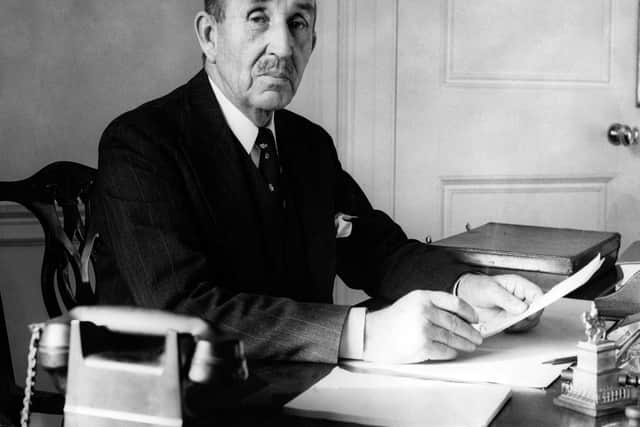New Ulster Cabinet to face a confidence vote at Stormont (1943)
and live on Freeview channel 276
In the morning the Northern Ireland PM was to make a statement to a meeting of the Unionist Parliamentary Party in Belfast.
The vote at Stormont was to take the following motion: “That the House welcomes the formation of a government whose policy to continue to maintain the constitutional position of Northern Ireland, to bring the utmost vigour to the task of assisting the war effort of the United Kingdom, the Empire, and the Allied Nations, and to make further preparations for dealing with the problems of the post-war period.”
Advertisement
Hide AdAdvertisement
Hide AdThe motion, it was understood, was to be seconded by Mr H C Midgley (Commonwealth Labour, Willowfield).


Standing orders were to be suspended, and Sir Basil intended to give members on all sides a chance to express their views.
The News Letter noted: “It is possible that the debate may extend over two days.”
New ministers were to face barrage of questions. Mr Brown (Unionist, South Down) was to ask the Prime Minister about the total amount of the individual salaries, allowances and expenses to be paid to each cabinet minister, including himself, all parliamentary and assistant parliamentary secretaries; whether he could state how the salaries compare with those of the outgoing administrators, and whether any effort had been or would be made to effect economy in the entire administration.
Advertisement
Hide AdAdvertisement
Hide AdMr Brown was also to ask the Minister of Home Affairs (Mr William Lowry) whether his ministry had received a resolution passed by Newry Board of Guardians, and adopted by various local authorities, advocating the establishment of a sanatorium for the treatment of tuberculosis in each county, and whether the ministry intended to act on the suggestion.
Mr Brown was to ask the Minister of Public Security (Mr Midgley) whether he would arrange for the temporary release of as many of the personnel of the Civil Defence and National Fire Service that could be safely spared to assist in gathering in the harvest.
Other questions by Mr Brown related to war pensions appeal tribunal, the number of unemployed, and religious instruction in secondary schools.
In addition, he was to ask Sir Basil Brooke, as Minister of Commerce, whether he could make any statement as to the present position and outlook of the linen industry, and whether steps had been or would be taken for the utilisation of closed mills and factories.
Mr Dowling (Unionist, Windsor) was to the Minister of Education (Mr Robert Corkey) if any steps had been taken to appoint a permanent youth committee as recommended by the Youth Welfare Committee.